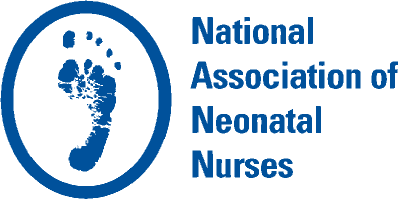Feature
Trauma-Informed Care and Psychosocial Support for NICU Families
Tosha Harris, DNP APRN NNP-BC
Trauma-informed care recognizes that trauma can have a profound impact on individuals and prioritizes safety, trust, and empowerment in healthcare settings. This approach is crucial in neonatal intensive care units (NICUs), where families often face intense emotional and psychological stress. By integrating trauma-informed care principles into neonatal nursing practices, we can significantly enhance the well-being of our patients and their families.
Trauma-informed care should not be confused with trauma-specific care interventions. Trauma-informed care involves integrating its foundational assumptions and principles into the way care is provided to patients and families who have experienced trauma. According to the Substance Abuse and Mental Health Services Administration (SAMHSA, 2014, p. 7), "Individual trauma results from an event, series of events, or set of circumstances that an individual experiences as physically or emotionally harmful or life-threatening, and that has lasting adverse effects on the individual's functioning and mental, physical, social, emotional, or spiritual well-being." It's essential to recognize the deep personal trauma many parents bring with them into the NICU. However, this article will primarily focus on the intense, shared trauma of having a child in the NICU, a critical and often life-altering experience.
Psychosocial Stressors for NICU Families
Preterm birth results in a physiologically and developmentally immature infant who is forced to interact with an extra-uterine environment that is harmful enough to permanently alter normal brain development (Altimier, 2015). Preterm infants often spend weeks to months hospitalized in an environment starkly different than that of nurturing, protective, and individualized uterus. This puts preterm and critically ill infants at high risk for experiencing toxic stress. Toxic stress, defined by Johnson, Riley, Granger, & Riis, is the “extreme, frequent, or extended activation of the stress response, without the buffering presence of a supportive adult” (2013, p. 320).
For parents, the experience of having a newborn in the NICU is often unexpected and can be highly traumatic. For parents, having a newborn in the NICU is often an unexpected and highly traumatic experience. They may encounter a range of psychological and emotional challenges, including anxiety, depression, and stress disorders that can encompass both long-term trauma and acute stress from the immediate circumstances. The sudden shift from anticipating a healthy baby to coping with a critically ill infant can induce feelings of guilt, helplessness, and fear. These emotions are compounded by the physical separation from their baby, the unfamiliar and often intimidating NICU environment, and the disruption of family routines.
Assessing, Identifying, and Implementing Trauma-Informed Care in the NICU
Early identification of trauma in NICU families is essential for timely and effective intervention. Neonatal care providers can utilize various tools and methods to assess trauma and stress levels. Regular assessments allow providers to tailor interventions to the specific needs of each family.
Creating a trauma-informed environment in the NICU requires a multifaceted approach that includes staff training, policy development, and environmental modifications. Staff training should focus on understanding the prevalence and impact of trauma, recognizing the signs of trauma in families, and responding in ways that promote safety and healing. In 2022, Coughlin et al. authored NANN’s position statement on trauma-informed, age-appropriate care in the NICU. Trauma-Informed Care in the NICU reflects a growing recognition of the importance of addressing the trauma and stress experienced by neonates and their families. Its guidelines provide a framework for providers to deliver compassionate, holistic care that promotes the well-being of both infants and their family. This creates a more supportive and healing environment, leading to better outcomes for the youngest and most vulnerable patients.
Psychosocial Support Interventions
Psychosocial support interventions are vital in mitigating the impact of NICU-related trauma on families.

- Professional Counseling: Professional counseling provides a safe space for parents to express their fears, anxieties, and emotions. Therapists can offer coping strategies and emotional support tailored to the unique challenges of having an infant in the NICU.
- Educational Programs: Educational programs can empower parents by providing information about their infant’s condition, the NICU environment, and what to expect during and after the NICU stay. Knowledge can alleviate some of the anxiety and uncertainty parents may feel.
- Support Groups: Support groups offer parents the opportunity to connect with others going through similar experiences. Sharing stories, challenges, and successes can reduce feelings of isolation and provide a sense of community and mutual support.
- Multidisciplinary Support: A multidisciplinary team approach ensures that all aspects of the family’s well-being are addressed. Social workers can assist with practical needs, such as navigating insurance and accessing community resources. Psychologists can offer therapy and support for mental health concerns, and child life specialists can provide age-appropriate support for siblings.
Benefits of Trauma-Informed Care
McKeown et al. (2023) found that up to one third of NICU parents experience symptomology related to PTSD due to their experiences while in the NICU. As cited by Rodrigues et al. (2024), this rate is significantly higher than the general postpartum population rate of 4% and is especially troubling because maternal PTSD symptoms have been shown to adversely affect mother-child attachment and child outcomes.
Implementing trauma-informed care in the NICU is beneficial to the emotional and psychological well-being of the parent-infant unit. When parents feel supported and empowered, they are better able to participate in their infant’s care, which can positively impact the infant’s health and development. Moreover, trauma-informed care can enhance the overall experience of families in the NICU, leading to higher levels of satisfaction with care and better long-term family functioning.
Interdisciplinary collaboration is key to advancing trauma-informed care. By working together, healthcare providers, researchers, and policymakers can develop innovative solutions to support NICU families. Ongoing education and training will ensure that staff are equipped with the knowledge and skills to provide trauma-informed care and that NICUs remain responsive to the needs of families.
Challenges and Barriers to Implementing Trauma-Informed Care
Despite its benefits, there are challenges to implementing trauma-informed care in the NICU. Resource limitations, such as funding and staffing shortages, can hinder the development and sustainability of trauma-informed programs. Staff resistance to change and lack of training can be significant barriers.
To overcome these challenges, it is essential to secure leadership support and advocate for the allocation of resources to trauma-informed initiatives. Training programs should be ongoing and include opportunities for staff to reflect on their practice and receive feedback. It also is crucial to create a supportive work environment that addresses staff burnout and promotes self-care.
Trauma-informed care and psychosocial support are essential components of holistic NICU care. By recognizing the impact of trauma and by understanding and addressing the emotional and psychological needs of families, we can create a more supportive and healing environment that will lead to better outcomes for infants and their families, foster resilience, and promote long-term well-being that extends beyond the walls of the NICU.
References
Altimier, L. B. (2015). Neuroprotective core measure 1: The healing environment. Newborn & Infant Nursing Reviews, 15(3), 91–96. https://doi.org/10.1053/j.nainr.2015.06.014
Coughlin, M., DeWolfe, T., Frey, S., Fuller, K., & Harris, T. (2022). Trauma-informed care in the NICU [Position Statement]. National Association of Neonatal Nurses. https://nann.org/uploads/About/PositionPDFS/Trauma_Informed_Care_in_the_NICU_2022.pdf
Johnson, S. B., Riley, A. W., Granger, D. A., & Riis, J. (2013). The science of early life toxic stress for pediatric practice and advocacy. Pediatrics, 131(2), 319–327. https://doi.org/10.1542/peds.2012-0469
McKeown, L., Burke, K., Cobham, V. E., Kimball, H., Foxcroft, K., & Callaway, L. (2023). The prevalence of PTSD of mothers and fathers of high-risk infants admitted to NICU: A systematic review. Clinical Child and Family Psychology Review, 26(1), 22–49. https://doi.org/10.1007/s10567-022-00421-4
Rodrigues, S. M., Bounds, D. T., Terry, J., Pinto, M. D., Shin, S., & Burton, C. W. (2024). Application of trauma-informed care principles to care needs identified by mothers of NICU-hospitalized children. Issues in Mental Health Nursing, 45(2), 142 –151. https://doi.org./10.1080/01612840.2023.2250000
Substance Abuse and Mental Health Services Administration. (2014). SAMHSA’s concept of trauma and guidance for a trauma-informed approach (HHS Publication No. [SMA] 14-4884). U.S. Department of Health and Human Services. https://ncsacw.acf.hhs.gov/userfiles/files/SAMHSA_Trauma.pdf

